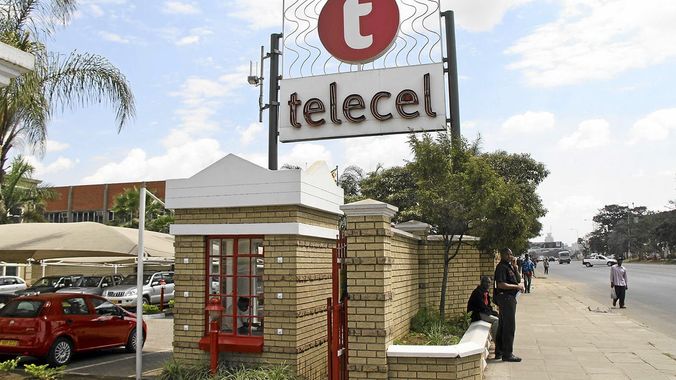By Shame Makoshori
An exodus of subscribers hit Telecel Zimbabwe in the aftermath of government’s threat to cancel its licence over alleged non payment of fees last year, mobile telecoms industry data showed this week.

The Postal and Telecommunications Regulatory Authority of Zimbabwe (POTRAZ) said in its 2015 third quarter report that almost 60 percent of Telecel’s subscribers were inactive in the months after a brief cancellation of its operating licence in April, which would be followed by a surprise State takeover of the network.
The situation compounded the telecommunication company’s woes, which include a sector-wide decline in fortunes due to the emergence of alternative communication platforms and a deteriorating economic environment.
“All mobile operators with the exception of Telecel experienced increases in their active subscriber base. Telecel subscriptions have been continuously declining since the third quarter of 2014. On the other hand, NetOne and Econet’s subscriptions have been generally on the increase,” POTRAZ said.
“The total revenue generated by the three mobile operators in the third quarter of 2015 was US$182, 5 million. This represents a 0,4 percent decline from US$183,1 million recorded in the previous quarter,” it noted.
Econet Wireless Zimbabwe and NetOne reported 27 percent idle subscribers each, according to POTRAZ. The country’s third largest mobile phone network by subscribers plunged into crisis last year after government said it had cancelled its licence, a situation that almost left 1 000 workers in the lurch.
Government accused Telecel of failing to pay US$137 million needed to renew its licence.
In between the frustrating moments, government renewed efforts to bring finality to a long standing dispute over the network’s compliance with the country’s empowerment laws, with authorities piling pressure on major shareholder, Telecel International (TI) to sell at least 11 percent of its stake to indigenous Zimbabweans.
Zimbabwe’s empowerment policy compels foreign investors to hold a maximum of 49 percent shareholding in all businesses.
ICT, Postal and Courier Services Minister, Supa Mandiwanzira has also spent the past year working to regularise Telecel’s operations in terms of the law.
TI, the foreign investor, held 60 percent shareholding in Telecel. Telecel’s licence had also been given on the understanding that the shareholding would tilt in favour of indigenous shareholders.
A day after government revoked the licence in July, executives confirmed jostling among Telecash subscribers to withdraw their funds. Telecash is one of three main mobile money transfer platforms on the market. It competes with other providers, including Econet’s Ecocash and NetOne’s OneWallet, in a sector that held a combined US$458 million in deposits during the review period.
When government cancelled the licence, Telecel warned that it would take “immediate action, both locally and internationally, to challenge the decision”, setting the stage for a potentially bruising legal battle.
Eventually, TI was forced to sell its stake to government.
POTRAZ’s report revealed how Telecel battled to forestall a sustained decline in subscribers after the confrontations. It said the decline had started in the third quarter of 2014 and gained traction in the third quarter of 2015, when the mobile firm’s active subscribers slid by 1,2 percent to 1,913 million from 1,936 the previous quarter.
During the third quarter of 2015, Econet and NetOne’s active subscribers increased by 0,7 percent and 12,4 percent respectively. Telecel had 2,2 million active subscribers during the third quarter of 2014, which slowed down to 2,1 million in the final three months of the year. It shows a gradual increase in Net One subscribers that started from the third quarter of 2014, when Telecel was experiencing a slide.
Growth in Econet subscribers was generally flat, as NetOne pushed its active customers to 3,8 million in the third quarter of last year, from 2,7 million the previous year.
This coincided with a government directive for Telecel subscribers to migrate to NetOne.
Telecoms networks have assumed the role of banking institutions through Telecash, Ecocash and OneWallet.
And signs of instability in their operations have been met with the same response that confronts banks when they plunge into turmoil, such as a run on deposits and loss of subscribers.
Subscribers would not only withdraw their cash but throw away sim cards and switch to other networks.
In November, government bought TI’s 60 percent stake in a US$40 million deal.
Before the transaction, Telecel was jointly owned by TI and Empowerment Corporation, a consortium of Zimbabwean investors who controlled 40 percent.
But those aware of government’s record in companies in which it already held controlling interest viewed the transaction as bad news.
The fear was that once under State control Telecel could fall into the situation many parastatals find themselves in – undercapitalised and unable to make independent decisions because of government bureaucracy and interference.
TechZim founder, Soul Kabweza, told Financial Gazette Compnies & Markets at that time government already had interests in other sector players to have been desperate for a stake in Telecel.
“It would likely not be that government needed another operator, since, quite clearly, they have a lot of telecoms operators already providing mobile voice and internet services. These include NetOne, Powertel, TelOne — which has a mobile voice license they are not using — and even investments in Africom,” he said.
“It already does not make sense why government has not consolidated these existing investments over the years. The companies have missed opportunities to leverage each other’s investment infrastructure and resultantly have not performed well for their shareholder, the government.
“My speculation is that government was not happy with certain shareholders of the company and made the move to neutralise them or take control of a key investment these shareholders have,” Kabweza said. Financial Gazette






